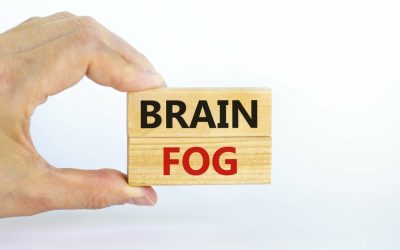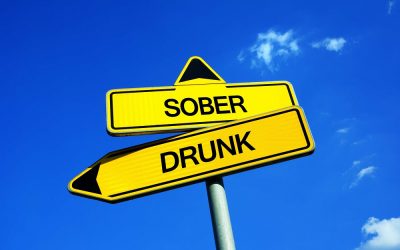Contents
He earned a Bachelor’s degree at Lincoln University of Pennsylvania while pursuing his CAC-AD. With strong ties to Victory Christian Church and the 12-step community, Federico shares an amazing personal story of redemption and long-term recovery. With over 32 years in the arena of addiction and sobriety, he uses his vast experience to provide a unique approach to mentorship and guiding our clients toward a supportive lifestyle of recovery. Mr. Douglas’ experience, strength, and hope inspires those in our program, and prepares them for the real-world journey of recovery.
Can B12 help glaucoma?
Some evidence suggests that a high intake of vitamin B through dietary sources, including green leafy vegetables, may reduce the risk of some types of glaucoma. But B complex supplements, including folic acid, vitamin B6 and vitamin B12, don't appear to offer the same benefit.
Finding help to overcome an addiction can be overwhelming and isolating. Knowing where to start, what kind of help is available, and how to choose the right program is challenging. Searching for the right information for you online can provide so much information that you may not know where to start. This blog will help answer some common questions about intensive outpatient programs for addiction. As with many things, you will often get what you pay for, and luxury treatment centers can provide you with a high level of care, comfort, and quality amenities. You can also get what you need out of a traditional rehab facility for a lower price tag, however.
Kolmac Fees and Insurance
Her experience in behavioral health training, program development, and organizational leadership lead her to pursue a certification as a Project Management Professional in 2018. Intensive outpatient treatment is more affordable than inpatient care, as there is no residential component. Our program is not only reasonably priced, but it also helps patients recover while continuing to work and staying connected to their daily lives.

Intensive outpatient treatment programs, also known as IOP, are typically cheaper and more cost-effective than traditional inpatient or residential addiction treatment options. One of the primary considerations for any addiction treatment program is cost. Many people choose to use their health insurance benefits to cover some of the cost of outpatient drug rehab programs like IOP. Although self-pay options are also available, using your health insurance benefits can greatly reduce your out-of-pocket costs. IOP stands for “intensive outpatient program,” which is a type of treatment program that addresses addiction and other behavioral issues. Much like residential rehab, IOP provides intensive recovery programming but it allows for more flexibility, as clients can live at home or in a sober living house while they complete their program.
What Is The Difference Between A Group Home And A Residential Treatment Center?
As a licensed clinician, Cheryl stands ready to diagnose and treat a wide spectrum of mental, behavioral, and personality disorders that sometimes present alongside a substance use disorder. Throughout that process, he learned the importance of helping others and living by spiritual principles. Throughout his recovery, James has used his personal story to help make a difference in the lives of others. Over the years he grew into becoming an advocate for people in recovery or seeking recovery from substance use disorders.
What does IOP stand for?
What Does IOP Stand For? IOP stands for “intensive outpatient program.” IOP programs treat substance use disorders and co-occurring mental health disorders.
IOPs can last anywhere from eight weeks to six months, depending on the individual’s progress. This commitment is much less than inpatient treatment, which can last up to a year. Before assessing the costs, you need to decide if IOP is the right setup for you.
To learn more about IOPs and other substance abuse treatment programs, please reach out to a Recovering Champions specialist today. However, if you have a moderate-to-severe addiction, a standard outpatient program may not offer the level of care you need. In these cases, you should consider an intensive outpatient program . An IOP is typically for people who have completed an inpatient detox or rehabilitation program and are seeking continued care to prevent relapse. IOPs are also often recommended for people struggling with a substance abuse disorder but who cannot commit to the time requirements of an inpatient program.
Different Levels of Care
Rehab at home is not your best treatment option for addiction recovery. IOP is usually covered by most insurance carriers when IOP is referred by a doctor or psychiatrist following inpatient care at a hospital. Residential treatment https://en.forexpulse.info/ is just one option for drug and alcohol rehabilitation . Inpatient treatment is a short-term stay, usually seven to ten days. Dual diagnosis treatment helps with co-occurring mental health concerns causing your addiction.
Drugabuse.com needs to review the security of your connection before proceeding. Inpatient care is also the best option for people who lack strong support systems or whose home environments encourage drug use. The Association for Addiction Professionals represents the professional interests of more than 100,000 addiction-focused health care professionals in the United States, Canada and abroad. Find out if the facility offers payment on a sliding scale, which allows you to pay what you are able based on your financial situation. Facilities that are located in secluded and desirable locations often cost more. The same is true for centers that offer private accommodations and posh, luxury environments.
You can meet peers and find support during group therapy sessions. The difference between an inpatient and outpatient facility is that you stay overnight at inpatient facilities. IOP is intensive due to the schedule of treatment.You will meet with clinicians and support groups for at least 10 hours per week. There are several ways to offset the cost of inpatient treatment. Our team of addiction medicine experts are compassionate and committed to making addiction treatment accessible, understandable, and affordable.
Contact with the psychiatrist who is leading the treatment team is frequent, but is included in the overall fee for the package of services. Colorado Recovery is committed to treatment that is both innovative and comprehensive. A selection of our services are often not covered by many commercial insurances as a result. However, our team will work with you to alcohol addiction & abuse review your individual financial considerations in the construction of your treatment plan. We also support you by providing completed claims forms for you to submit to your insurance company for any services that might be eligible for some reimbursement. The cost will vary depending on the program, your treatment plan, and how long you stay in treatment.
If you wish to pursue short-term disability, we will handle the paperwork for you as long as treatment is medically necessary and you are making progress with treatment. It takes some time for the state to process short-term disability claims, so we will work diligently to ensure you receive your check as quickly as possible. You have been using drugs or alcohol a lot for a long time, and you struggle with significant withdrawal symptoms and cravings when they wear off.
How Much Does IOP Cost?
Sliding Scale – It is possible to find a treatment center that will work off of a sliding scale based on monthly income and offer financial aid to lower-income levels. For inpatient rehab treatment, the length of stay, the type of accommodations and the amenities, will greatly affect cost. Withdrawal symptoms during detox can be difficult to manage without inpatient treatment. At your home, you might have triggers nearby that make it hard to quit drugs or alcohol. You might live with others, who currently use, or have family members who unintentionally enable your addiction.
What is IOP in Medi-Cal billing?
An intensive outpatient program, or IOP, in which outpatient behavioral health services are provided for between 9 and 19 hours per week.
You could also call a local addiction treatment center and ask them for any information they might have about available free or reduced-cost programs. In Virginia, no-cost addiction treatment may be available to some Virginians living in the Northern Neck . Several providers, including Master Center, participate with the Bay Rivers Telehealth Alliance .
Many private insurance plans cover mental health and substance abuse, including all levels of care. This type of treatment is suited for those who require around-the-clock supervision. Bridging the gap between addiction and getting sober can be hard.
It can help you change unhealthy behaviors and develop coping skills to prevent relapse. Individual therapy gives you the opportunity to strengthen your mental health in a one-on-one setting and further develop the skills you learn in group therapy. You may qualify for short-term disability through the state or medical leave through your employer.
How Long Is PHP Treatment?
Most people have government-provided or commercial health insurance that could reduce the cost of IOP. The amount your insurance covers will vary based on your individual insurance plan and whether the IOP provider accepts it. Your loved one is ready to get the addiction treatment they need. But now, let’s go over the cost of insensitive outpatient treatment. We will go over the cost of three forms of drug and alcohol treatment and discuss a little bit onIOP programming.
- If you don’t have health insurance, an admissions representative from the treatment center of your choice should be able to provide you with alternative payment options.
- They’ve been where you are and can provide real-world suggestions to approach the shared challenges of recovery.
- Support groups and 12-step programs are just one part of a treatment plan for addiction recovery.
- The amount your insurance covers will vary based on your individual insurance plan and whether the IOP provider accepts it.
- During a stay at a residential treatment center, you help to support your peers to maintain a healthy and comfortable place.
IOP at Master Center is somewhere in the middle of this range. We charge $350 per session – which for the full 24 sessions adds up to $8,400. As a provider of IOP services in early, mid, and late stages of alcoholism Virginia that has guided thousands of patients through this treatment program, we can help. In fact, one of the most common questions we get asked is about the cost of IOP.
What Is Intensive Outpatient Treatment?
Her primary focus is to provide all clients with a safe, structured environment while coordinating their care. Alexandra understands addiction from both familial and personal standpoints, as she is active in her own recovery. Alexandra is a mother, a daughter, a sister, a friend and has learned the value of recovery and succeeding in whatever she sets her mind to. Her innovative approach as Director of Operations gives her clients a safe and compassionate place at The Freedom Center to begin their recovery journey.
If you don’t make time for your wellness, you will be forced to make time for your illness. At Renaissance Recovery, we care about you getting back to your healthiest self and offer a wide range of treatments to facilitate your wellness. Vince is a licensed social worker who treats clients recovering from substance use disorders. Vince received his bachelor’s degree in Family Science from The University of Maryland, and received his master’s degree in Social Work from The Catholic University of America. He provides individual therapy, group therapy, and assessments for clients in recovery from substance use and any related mental health issues. Vince is passionate about the work that he does, and approaches therapy through an empathetic and motivational approach.
Each program will have some requirements you need to meet in order to be eligible for assistance under a specific program. Rehabs.com needs to review the security of your connection before proceeding. We will continue offering virtual IOP and Detox services in all locations. Receive weekly insights to help you and your loved ones on your road to recovery. If you are addicted to strong, illicit drugs or use them often, you might be at risk of physical harm due to withdrawal symptoms.
If you have health insurance and you’d like to use it to pay for IOP, the first step is determining if your benefits cover IOP and to what extent. Although an admissions representative at a treatment center can verify your insurance for you, if you’d like to do it yourself before contacting any treatment providers, you may. Residential treatment programs might have detox services, but treatment plans begin when you are stable. The real work of recovery begins when you are finished dealing with withdrawal. Substance Use for Teens Explore individualized treatment programs that help teens with drug abuse, mental health, and co-occurring conditions.






